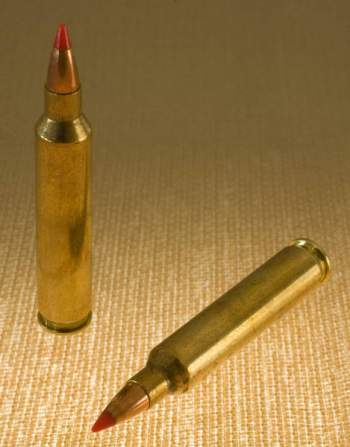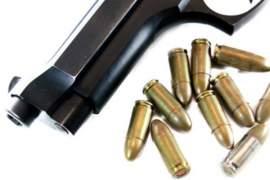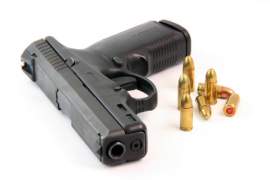
Understanding Ammunition Purchasing

It might serve to think that gun ammo is not as difficult to acquire or purchase than a firearm itself. The are restrictions and regulations that limit the availability of shotguns, rifles, and handguns that vary on strictness depending on each state's legislation.
This is compounded by the fact that each state has specific rules that may not be compatible or as restrictive as other states, thus making the understanding of firearm laws that much more difficult. It is imperative for any person seeking to purchases or is currently an owner of a handgun to be fully aware of the laws imposed by the state; in some cases, being familiar with neighboring states' laws is also suggested, if ever planning on traveling with a firearm to that state and participate in hunting and/or sporting activities.
This is strongly advised to those firearm owners with licenses to carry concealed weapons, for not only do the restrictions differ from state to state, but some do not even allow for the concealed carry of firearms. Similar restrictions also apply for gun ammo and ammo sales. Certain states impose extra restrictions, as long as they do not violate or contradict the already imposed federal regulations.
For the most part, most states follow the basic outline for gun ammo and ammo sales that is provided by federal guidelines. The age requirement for the purchase of gun ammo is for an individual to be at least 18 years of age.
This includes all gun ammo that is to be used for rifles and shotguns. Handgun ammo purchasing is reserved for those over the age of 21. As with firearms, the sale or purchase, or possession by convicted felons is strictly prohibited. This also includes individuals with a criminal history involving violent crimes--including domestic violence--as well as those with a history of substance abuse--including illegal drugs, alcohol, and/or controlled substances.
Other restrictions include that no person that is an illegal alien; has been dishonorably discharged from the armed forces or military; renounced U.S. citizenship; fugitive from justice; or been committed to a mental institution may be in possession of gun ammo. Ammo sales to people that coincide with these criteria is also prohibited.
Certain states take the restrictions of ammo sales a bit further by adding certain conditions or regulations to existing federal laws. Both the states of Illinois and Massachusetts require that individuals acquire a firearm identification card.
The I.D. card is akin to a gun permit, and must be presented to the authorized dealer to purchase gun ammo. The I.D. cards must be applied for and the applicants are subject to pass a criminal history background check to be eligible. Other states limit the types of ammunition and the capacity of ammunition magazines that can be sold within their borders.
Though strict regulations already apply at the federal level, eleven states impose stricter laws regarding armor-piercing bullets. This type of gun ammo is designed to pierce through ballistic vests, as well as vehicle armor, tanks, and concrete. It is obvious that with damage that this type of gun armor can incur, that would be regulated appropriately.
Eleven states currently have stricter laws regarding armor-piercing bullets than originally found in federal legislation. Similar restrictions on large-capacity magazines are imposed by at least six states. A large-capacity magazine is individually defined by each state. A gun magazine is a container that houses cartridges that eliminate the need of individual reloading, and feeds the cartridges automatically as part of the weapon's function.
The states regulating these types of magazines each have their definition of as to how many cartridges in a magazine constitutes for the labeling of high-capacity. The capacity numbers range from as low as ten cartridges to no more than twenty cartridges. It is absolutely important for any firearm owner seeking buy gun ammo to be familiar with his/her state's gun laws in order to avoid legal difficulties.
Aside from observing the legal boundaries of purchasing gun ammo, in recent times, the restrictions only seem to be getting tougher. It is predicted that President Obama's term is bound to impose higher taxes in the sales of gun ammo. Since he became President, it seems as if gun ammo sales, as well as firearm sales, are on the rise. This leading to shortages of ammunition across all the country.
People are buying more than they usually would or need, simply because they want to stock up and avoid paying higher prices for their gun ammo. Though it is yet to be seen how the supposed ammunition taxes are going to affect sales, avid firearm users and supporters are trying to stock up just in case.
NEXT: What Are Ammunition Boxes





















